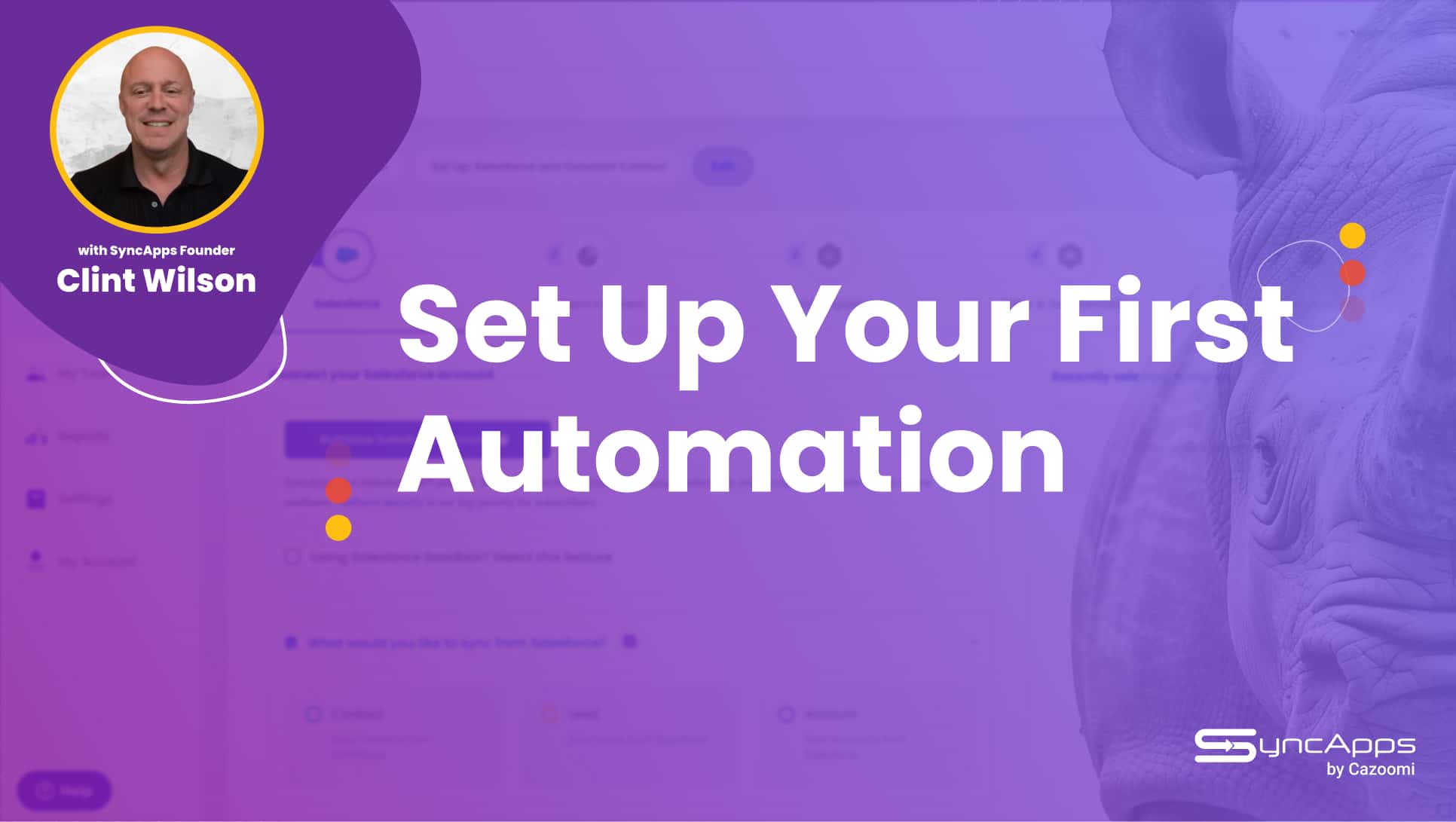
We are living in a fast-paced digital and information age where savvy digital content users constantly need to share and communicate. Instantly. And not just on one device or platform. On all of them if possible.
People share millions of tweets, Facebook posts, and Instagram posts every hour, and businesses and brands are equally expected to keep abreast of all this.
This growing volume of data is, however, making it harder and harder for businesses to keep up with their customer needs or even get themselves heard. Research conducted by Digg reveals some shocking statistics!

Image Source: Digg
In just one minute, one million Facebook users are logged in, 87,500 people are tweeting about one thing or another, 3.8 million searches are being queried on Google, 188 million emails are rushing to their respective recipients, and 347,222 people are getting their Instagram mojo on.
You must admit, there’s a lot of data moving up and down on social.
Against this backdrop, businesses are now increasingly being required to have current and live data on any mentions on all social media platforms where their customers frequent.
Now, the big question… no, two big questions.
How can your company possibly keep up or make sense of this information?
How can you ensure that you have relevant data to make informed decisions?
The answer is social media listening!
Social media listening will allow you to effectively manage, track and analyze all the data at your disposal, learn from it in real-time, and ultimately use it to make strategic decisions.
To put this into perspective, this article will delve deeper into social media listening and what it can do for your business, what social media listening is, how your business can benefit from it, and most importantly, how to do it right.
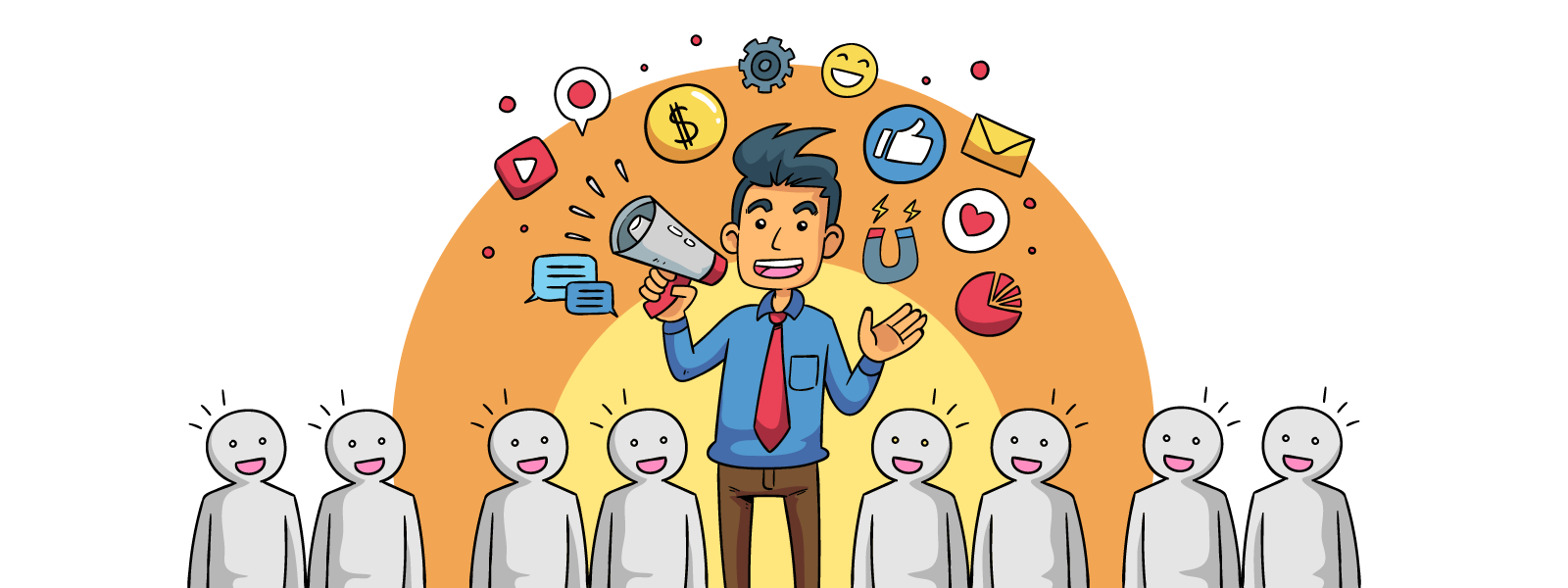
What Is Social Media Listening?
In today’s world, you don’t start a business and then sit back and watch as the profits grow.
Wouldn’t that be nice?
Sadly, it’s impossible.
Businesses that succeed need more than just a great idea. Your clients will pay for a good idea only if you provide them with excellent experiences.
Today, if the modern consumer has a problem with your product or service, they will not pick up the phone to call you and risk being put on hold. They will also not send an email that most often than end up getting ignored.
They will share their opinion with thousands of fans and followers who will listen to their complaints about poor service.
Hello retweets and shares!
(Bye-bye profits for you — insert weeping emoji.)
Forty-six percent of customers use social media to “call out” a business or complain. In terms of generations, 56 percent of millennials have called out or complained about a brand online.
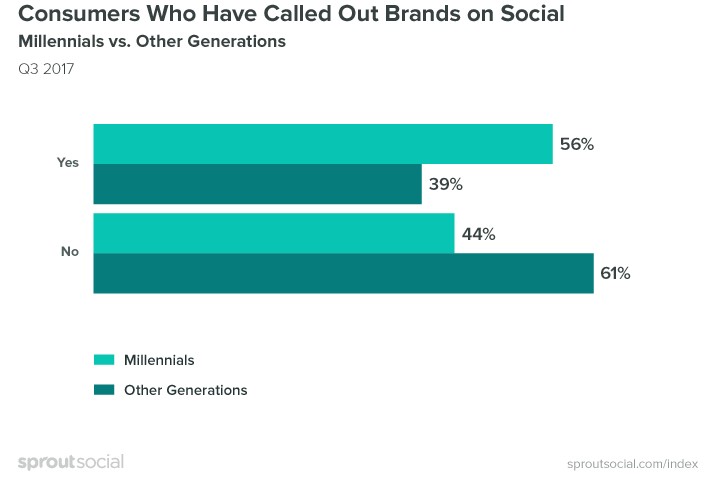
Image Source: Sprout Social
If you are not available as soon as disgruntled customers post or tweet about their not-so-rosy experience with your brand, you will not be in a good position to effectively identify their pain points, and therefore, can’t solve their issues in real-time.
If you are not listening to them, why should they listen to you? Not listening to your customers simply means that you will be missing opportunities to improve your brand. By doing so, you will also direct your customers to your competitors.
So, how do you ensure that this doesn’t happen to your business?
You need a social listening strategy to help you find out what people are saying about your brand. A strategy that helps you track conversations around phrases, keywords, events, your brand, your business, your industry, and competitors.
Listening enables you to single out trends and patterns that you can use to improve your brand as well as provide customers with great experiences.
Social listening allows you to be there when a customer voices their opinion, makes a recommendation, or posts a question or complaints on the different platforms. Monitoring this information opens new opportunities for the brand.
It’s also an opportunity to generate content using the words and phrases consumers are using. This also allows you to provide real-time advice, join the conversation, speak their language, and avert a crisis.
This also means that you are there when the customer needs you, which leads to improved brand visibility, enhanced customer trust, and increased conversions.

Social Media Listening vs Social Media Monitoring
Many people confuse social media monitoring and social media listening. These two are easily and commonly confused, so you are not alone.
According to Marketing Profs, “Monitoring sees the trees; listening sees the forest.”
Monitoring tells you what, while listening tells you why.
Monitoring involves tracking all messages or tweets about your brand and responding.
Listening gives you more information on audience sentiments and how your brand is performing.
This information can, in turn, help you make informed decisions.
Listening gives you a bigger picture. It’s more than just checking notifications frequently or finding @ mentions. What about the customer who uses your company name without including the twitter handle?
30.72 percent of tweets with company names don’t have the Twitter handle or hashtag. Only 9.16 percent of tweets that mention a company start with the @. If you don’t monitor mentions that don’t have the @ symbol, you risk losing over 30 percent of leads along with negative and positive feedback.
Over 90 percent of consumers are talking about your company rather than talking to you. Sometimes the consumers will completely forget to put the @ symbol. Some don’t include it on purpose while others misspell your brand name.
Social listening involves tracking all variations of your name, even the misspelled ones. It means being more than vigilant online. You must look beyond mentions to know what people are saying about your brand online.
You also need to engage in conversations, be helpful, friendly, and answer all concerns and answers without being rude!
(Just to be clear: this is a ‘how NOT to do social media for a brand’ example. Don’t use the F-word. Ever. Not even to show how edgy you are.)

Image Source: GetSpokal
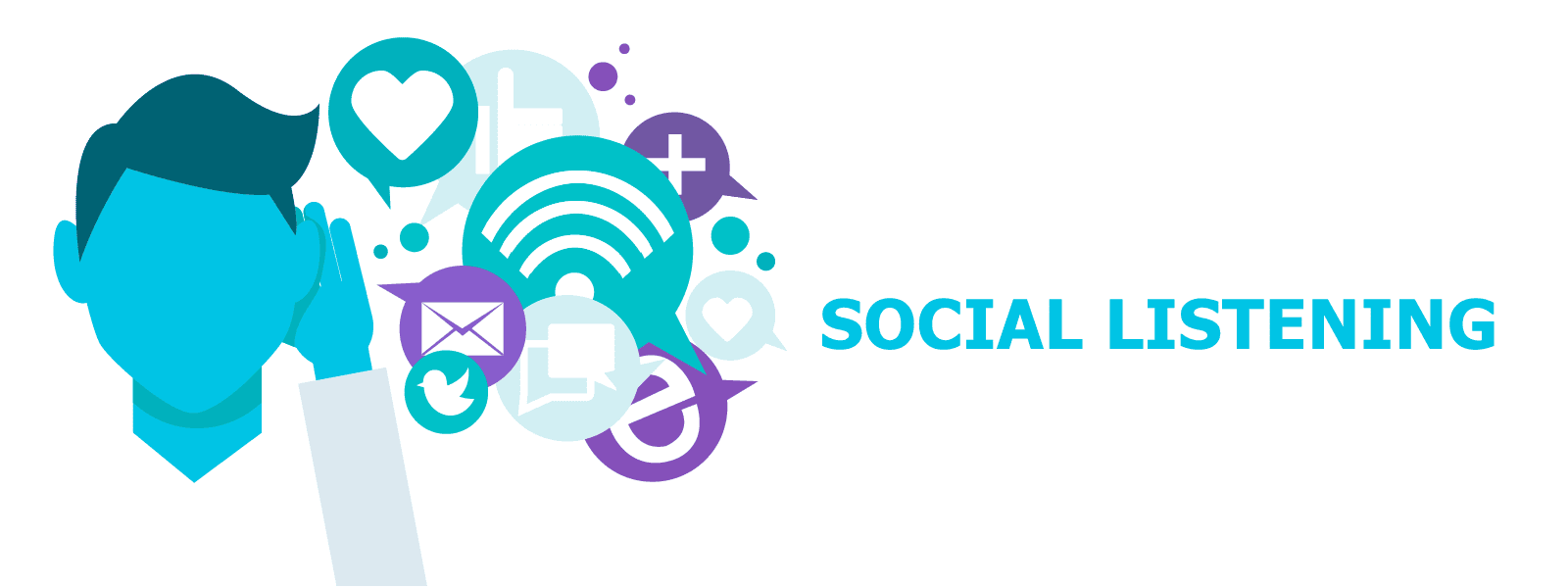
Why Does Your Brand Need Social Listening?
There are numerous social media platforms today, each with a different set of audiences, content, purpose, and editorial parameters. The good thing is that they all have mechanisms that your company can use to analyze for social insights.
People are talking to and about your brand online, and not listening to what they are saying means that you are missing out on some important opportunities. Your brand will be on various social media channels, and your customers will be on more.
You can decide to move from network to network looking for mentions, but you will waste time and end up missing some things. It becomes harder to know what customers are saying about your brand on all the channels at once — too many customers, sources, and voices.
With social listening tools, you can keep up with these conversations in real-time. Social listening helps you track social mentions across channels, find out what audiences are saying about your brand, analyze metrics, use the reports for marketing insights, and improve your products and services.
These tools not only help you monitor your brand name, but also your products, marketing campaigns, niche industry, keywords relevant to your industry, your CEO, and any other important information that may involve or affect your company.
The tools also cover the social media platforms your brand is not on, including forums, blogs, news, etc. You also benefit from analytics that helps you track your brand’s growth, reputation, and potential.

Top Benefits of Using Social Listening Tools
Tuning in to conversations about your brand has many benefits. It can help you attract new customers, build a strong and loyal following, and enhance your engagement with your customers.
Some of the benefits of social listening include:
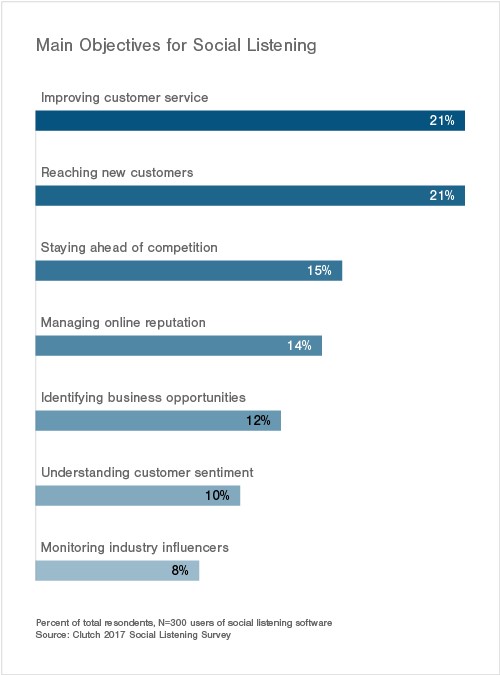
Image Source: Clutch
1. Improve customer service
Thirty-seven percent of customers expect to get their social media complaints or questions responded to in under 30 minutes.
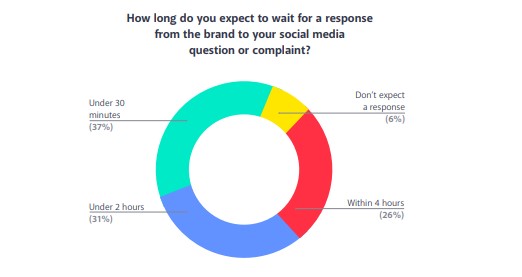
Image Source: Conversocial
Customer expectations keep changing, and this is making it harder for brands to keep up. They want instant services, meaning that your brand needs to provide the best customer service on all the channels that your followers are present.
According to research by Conversocial, only six percent of customers did not expect a response.
The increase in connectivity has led to changes in customer demands and expectations. They want services on their terms and brands that fail to meet them face dire consequences.
Fifty-six percent of consumers stop doing business with a company if they receive poor customer service experience.
Providing great customer experiences on social media platforms leads to repeat business. Ninety-two percent of customers are likely to become repeat customers to a brand that responds to their questions on social media platforms.

Image Source: Conversocial
Providing good customer service will also require a speedy and efficient response. Customers want you to solve their issues in a single interaction, in a personalized way, without having to be deflected to a different channel.
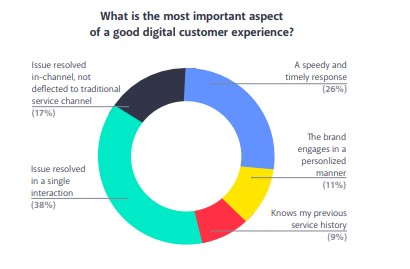
Image Source: Conversocial
When customers use social media to interact with your brand, they expect to get a fast and direct response to their questions or complaints. Customers do not want to be redirected to a phone number or an email.
Do not ask customers to switch channels. It only adds to their frustrations.

Image Source: Comm100
Respond to customers on the channels they use to ask questions or raise queries – both positive and negative. If the issue is sensitive, you can DM (Direct Message) the customer and ask them to provide their phone number and a convenient time to call. However, do not deflect them to another channel and ask them to call you.
With a dedicated customer service team and a good social listening tool, you can handle all customer queries at the right time while still providing the human element. You can easily track customer complaints and feedback.
Social listening tools allow your brand to ensure customer happiness and even convert them to become brand advocates. They also enable you to keep up with their expectations and boost your customer interaction efforts as well.
2. Crisis prevention and management
Information travels fast on social media, and that’s why most crises originate from these social channels. Failure to identify and address brand-related issues fast can subsequently escalate to a huge crisis in a matter of minutes.
All you need is a dissatisfied vocal customer, a handful of sympathetic followers/fans to share such a post, and soon, you will be trending for all the wrong reasons.
You must, therefore, be on high alert. Always be ready to handle any rumors (fake or real), deal with frustrated clients, and neutralize any imminent threats.
Lucky for you, social listening tools can instantly alert you in case of any negative mentions so that you can swiftly handle them before they become a crisis.
These tools have sentiment analysis algorithms that allow the system to sort neutral statements from pleasant utterances. It can also identify potentially damaging rants that could harm your business.
In any case, you must be ready to react and solve the issue before it becomes a full-blown scandal.
Social listening also eliminates the element of surprise. It allows you to instantly know when something unusual happens, react quickly and take full control of the situation, and ultimately safeguard your reputation.
A case in point is Uber after President Donald Trump announced a travel ban on some Muslim countries. Thousands of protesters flooded airports to speak against the ban with the New York Taxi Workers Alliance supporting the protest.
They called for their drivers to avoid the John F. Kennedy Airport between the hours of 6 p.m. and 7 p.m. Eastern time. However, Uber took a different approach by lowering its prices around the airport.
Most people on social media took this to be Uber’s way of supporting the ban or that they were trying to profit from the ban. #DeleteUber started trending with people actually deleting their apps from their phones.

Image Source: The Guardian
Over 20,000 users deleted their accounts and rival car-hailing app Lyft overtook Uber in total App Store downloads. To Uber, this resulted in about 0.5 percent of their total accounts, which is still much since it dented their reputation.
Imagine if this happened to your relatively small business, and a big chunk of customers suddenly stopped buying from you. You could end up shutting down.
Social media can ruin your reputation, and that a good enough reason as to why you seriously need to start listening.
3. Acquiring leads
With social listening, you can track keywords that could connect you with potential customers.
Some social media listening tools offer social selling add-ons that help you find potential customers. They pinpoint people looking for a service or product like yours or people unhappy with your competition. You can reach out to these people at their time of need and offer solutions.
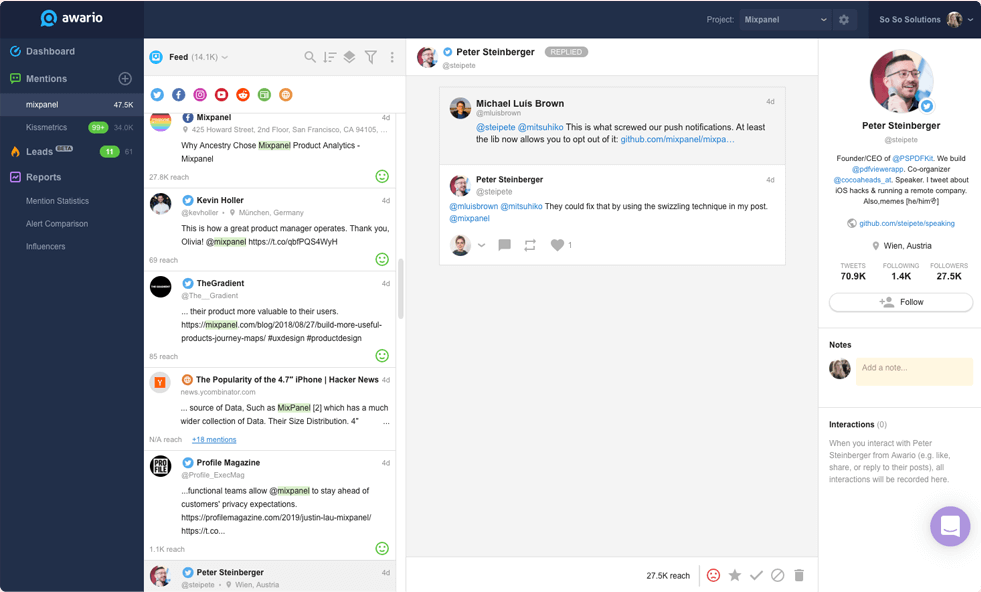
Image Source: Awario
To find qualified leads, you will need a tool with Boolean Search so that you can specify which words a search query can have, which ones it must have, and which ones it shouldn’t have.
The Boolean search lets you combine search keywords with operators like AND, OR, and NOT to limit, further define, or widen the search for relevant results.
You can then write search queries that describe your product using phrases people may use when searching for the product and phrases for people unhappy with the competitor’s product. You get leads that are relevant and that you can reach out to directly.
For example, phrases such as; “looking for”/can someone recommend”/“does anyone know”/ “advice on.”
You can also find prospects using searches for products or services that complement your brand. For example, someone looking for a great camping site would be interested in camping gear.
If you leverage such an interaction, you can get a new customer. You can offer advice on the best camping site then offer to get the camping gear at a discounted price. This interaction also introduces you to more platforms to feature your brand.
4. Find influencers
Ninety-two percent of businesses consider influencer marketing effective. Another research found that for every $1 that businesses using influencer marketing spent, they got $18 in earned media value. Even average companies reported gaining $5.20 in earned media value per dollar spent.

Image Source: Influencer Marketing Hub
However, 61 percent of marketers find it challenging to find good influencers for their campaigns.
Social media listening tools help you find brand advocates by identifying people who like to talk about your brand a lot.
You can also find people who talk about your industry and use this to engage them, comment on their posts, share their content, and ultimately build a relationship with them. It then becomes easy to approach them about a collaboration.
5. Real-time feedback
Social media listening tools give you access to real-time feedback that can help you improve your processes and develop your product.
Twenty-five percent of businesses primarily use social listening to get feedback and improve their products. Feedback tells you whether you are offering people what they want.
Social listening tools help you monitor your industry so that you can understand what people want and provide it to them.
Competitor monitoring will also provide you with insights on what their customers are frustrated about and what people like (or don’t like) about them. You can then offer tailor-made solutions for those complaining and provide better services than those providing them.

A Social Media Listening Strategy for Smart Enterprises
A good social media listening strategy can help you reap all the benefits mentioned above and more. Here is how to go about it:
1. Identify what needs listening for
What do you need to listen for, and why? The social listening goals should align with your digital strategy. For example, you want to monitor complaints, compliments, questions, mentions, and retweets.
2. Choose a social media listening tool
A good social listening tool will show you where your audience is hanging out. It will also do more than listen. It helps you:
- Generate leads
- Market your content
- Conduct research
- Find influencers
- Provide good customer service
- Monitor your competitors
Some of the social listening tools to choose from include:
a. Awario
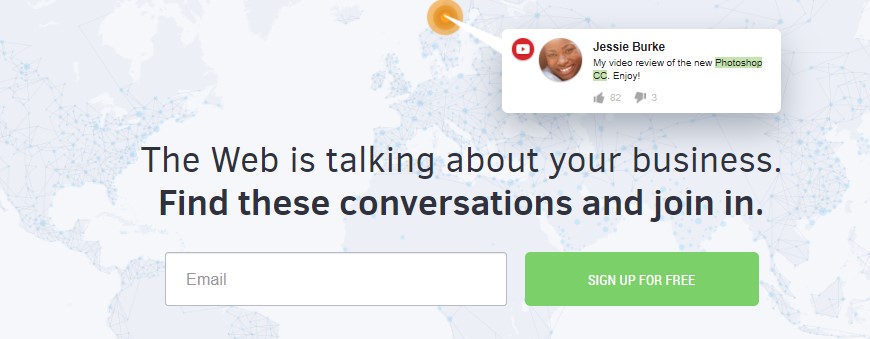
The Awario social listening tool includes features such as social selling, social media engagement, and lead generation. It uses Boolean search operators to help you get targeted searches.
You can discover relevant conversations, monitor real-time results, set alerts for mentions, and related social media posts.
It’s a great tool for influencer discovery, social selling, social listening, market research, and reputation monitoring/management.
b. Hootsuite
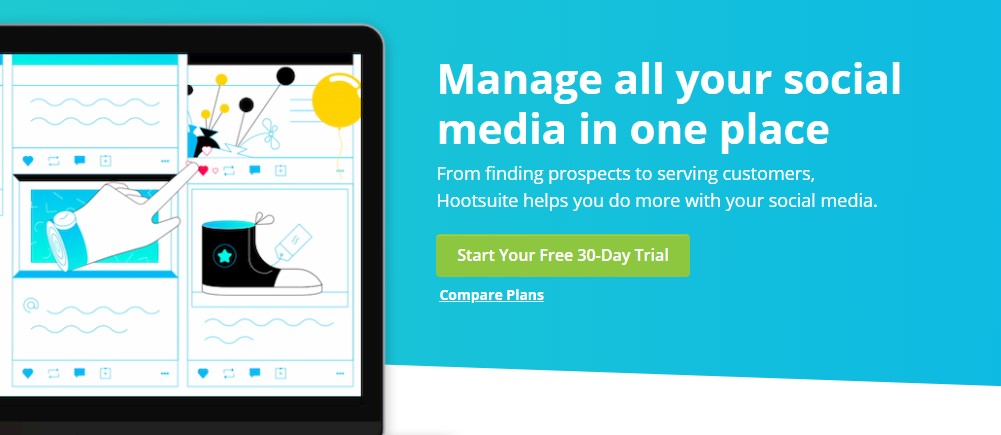
Hootsuite allows you to view comments, messages, and mentions on different channels and respond to them all from one dashboard. You can also track leads, influencers, and share this information easily with other teams in the company.
It’s a perfect tool for responding to comments and complaints in real-time.
Alternatives: Buffer, Sendible, SEMrush, and more.
c. Mention
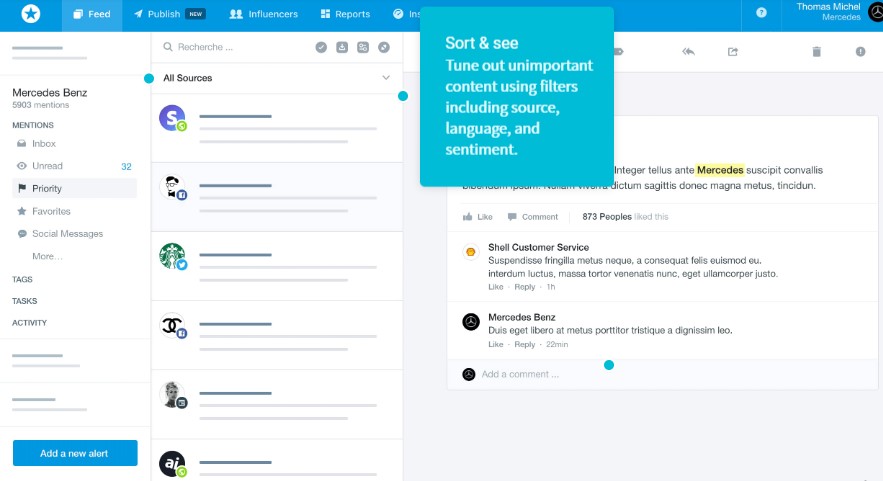
Mention focuses on real-time search, although it still offers historical data. It’s a good social listening tool that lets you discover influencers and provides data-rich reports. It provides you with the ability to monitor mentions from across the world and schedule automated posts.
They provide updates to help you compare daily or weekly metrics. You can track your growth and make necessary changes or updates to your products.
d. Brandwatch

Brandwatch provides analytics, image recognition, trending topics in your industry, demographic data, and API access. You can also export the dashboard to a Powerpoint presentation.
As a listening tool, it’s great for market research and generating customer insights that help you improve your strategies. It allows you to filter your search results, segment data into lists, categorize data, and gain detailed insights.
Brandwatch also provides image insights. You will receive alerts for images that mention your brand or feature your logo so that you can act accordingly.
e. Talkwalker

This social listening tool is also a good influencer marketing and social media analytics software. The Talkwalker tool monitors the entire web at a global level.
It helps you monitor and manage a crisis, monitor your social media performance, handle customer service issues, monitor various channels, and identify influencers.
3. Respond appropriately
How you respond to a comment or question can determine whether you ruin or build your reputation or brand. Listen carefully and respond appropriately.
If you need to apologize, do that promptly and address the issue directly. Try and resolve a problem fast and directly with the customer.
Acknowledge and thank the customer for compliments with a like, a comment, or a retweet.

Image Source: Trans Cosmos Informational Systems
It’s also important to identify the different types of channels and reply appropriately. Join the conversations organically and build relationships.
4. Analyze and learn from the data
Social listening involves taking action. Otherwise, you are just monitoring. Track the metrics and gain insights into what the customer wants and how to address their needs.
Measure patterns and trends over time to plan for your future strategies. Listen to what people are saying about your competitors and learn from them.
Share the information and insights you get with the rest of the team and departments. Everyone can benefit from the insights you get; the customer service team will respond immediately, the content team may get a great idea for a blog post, and the product development team could improve the products.

Conclusion
Social media listening will help you understand what your customers want, what they expect from you, their thoughts, feelings, and what they need from your brand. You can listen to them in real-time and act accordingly and fast.
Such tools allow your team to make strategic decisions that benefit your brand and company. You can find influencers, avert or handle a crisis, benchmark, and provide the best customer experience.
You can also identify where your business is falling short, see what the competition is doing, see what part of the business is excelling, and whether you can improve your product.
Knowing what your customers expect allows you to exceed their expectations. By listening, you discover what your customers think about you and why. You can then use this data to make strategic changes to your product, messaging, prices, and services.
Improving your brand and strengthening your customer experience can be made easier with social listening.




